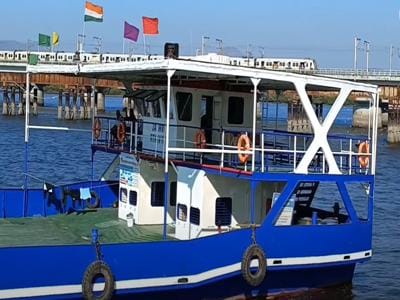Electric Water Taxi Mumbai

Electric Water Taxi: Mumbai’s Fast Route to Navi Mumbai Airport
Mumbai is set to experience a major leap in transportation innovation with the introduction of the electric water taxi Mumbai route, designed to dramatically reduce travel time to the upcoming Navi Mumbai airport. This groundbreaking project will revolutionize how locals and tourists commute across the city’s eastern waterfront ushering in a new era of Mumbai sustainable transport.
The centerpiece of this initiative is the Gateway of India marina project, launched by the Maharashtra government as part of a Rs 190 crore development plan. Paired with an upcoming water taxi service, it aims to cut travel time from South Mumbai to Navi Mumbai airport to just forty minutes a significant improvement over road-based options like the Mumbai Trans Harbour Link.
These water taxis are not just fast, but green. Developed with insights from the Kochi Water Metro and manufactured by Swedish company Candela, the taxis employ hydrofoil boats technology. These computer-controlled vessels lift above water using underwater foils, reducing drag and increasing speed while using far less energy than traditional ferries.
Initially, two electric hydrofoil boats will operate, each capable of carrying 30 passengers at speeds between 18 to 30 knots. These state-of-the-art boats promise a smooth, swift ride across the Mumbai to Navi Mumbai water route, while drastically reducing carbon emissions.
In addition to these vessels, the marina development includes passenger terminals with modern facilities such as parking for 150 cars, spacious waiting lounges, advanced luggage systems, and even an open-air amphitheater. To add convenience, e-golf carts will shuttle passengers around the marina complex.
The Mumbai Maritime Board (MMB) will manage the operations, including 15 boats along popular water routes Gateway of India to Elephanta, Alibaug, and Navi Mumbai. With a total estimated cost of Rs 330 crore and each boat priced at Rs 22 crore, this initiative underscores a strong commitment to eco-friendly public infrastructure.
Today, more than 30-35 lakh people travel annually by ferry from the Gateway of India. The new infrastructure will significantly reduce congestion by accommodating 2.5 lakh passengers per year at peak capacity. For daily commuters, this change offers a reliable, faster, and environmentally-conscious alternative to road travel.
Besides speed and sustainability, the experience promises to be scenic. Commuters will cruise past landmarks like the Gateway of India, Elephanta Island, and the lush Nerul-Belapur creek, a known habitat for flamingos. It’s not just a mode of transport it’s a journey through Mumbai’s rich natural and cultural heritage.
Scheduled for full completion by 2027, this project could be a game-changer for Navi Mumbai airport travel. It’s a bold step toward reshaping how people move through one of India’s busiest cities balancing speed, sustainability, and scenic value.
As demand for fast, clean, and reliable public transport grows, the electric water taxi Mumbai initiative shines as a visionary solution. It proves that infrastructure can be both functional and forward-thinking, setting a model for other Indian cities aiming for greener growth.
